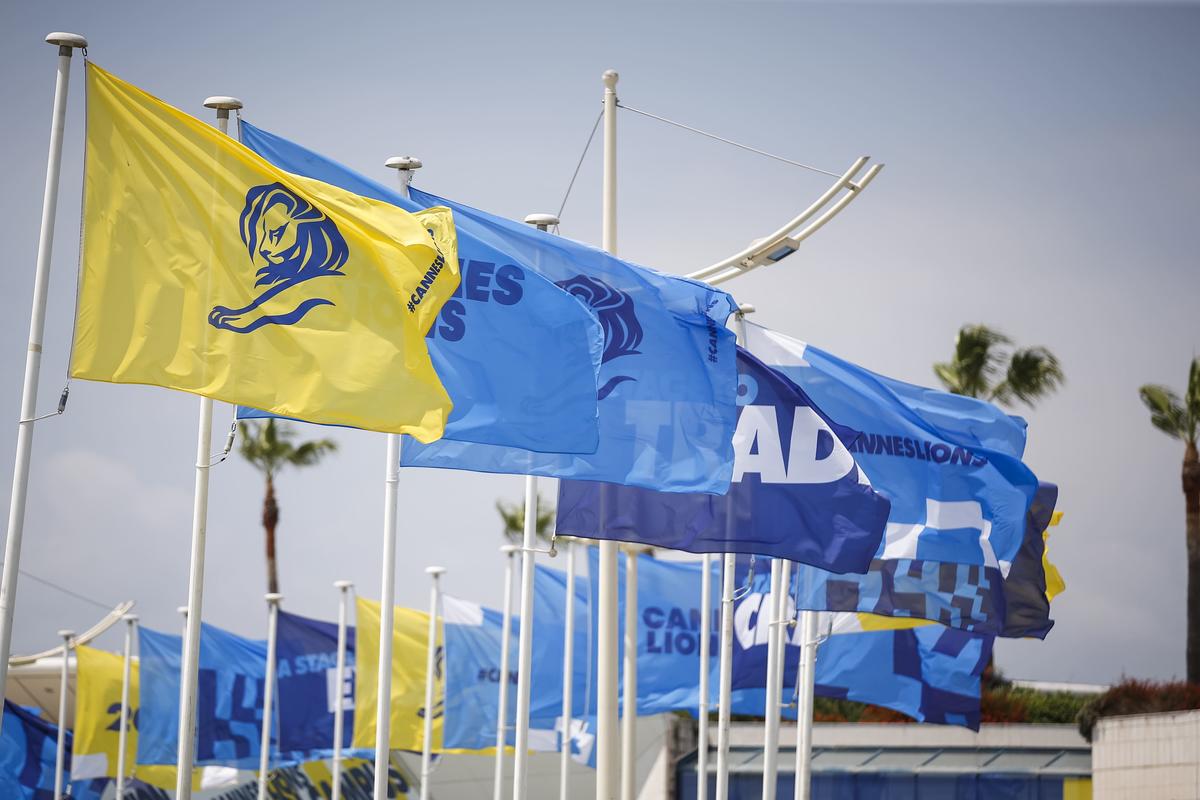As we inch slowly towards normalcy, one bright spot shines the most: conferences — and mid-conference business lunches and cocktails — are back! made its triumphant return this year, gracing the beautifully designed layout at Hudson Yards. Stretching across two levels of The Shops with stark, built-up walls and multiple levels of security, the conference felt like its old self, but much, much more sterile.
Like the Advertising Weeks of yore, there were people sitting on the floor with laptops, awkward greetings (to shake or not to shake?), and stolen glances at lanyards. Hinting at the future, they also had a TikTok sponsored bodega activation, mysterious people in lab coats, and lanyard QR codes that scanned directly to your LinkedIn profile. All in all, it just felt good to be back, to be out, and to be among our kindred spirits of Madison Avenue.
Meeting the demand of Advertising Week‚Äôs return, ∫⁄¡œ…Áshowed up in a big way this year, with four panel sessions, , CMO roundtables, and our second-best pair of heels. Gen Z also came to play this year, with a striking presence both on and off the stage at this year‚Äôs show.
The big topic: Gen Z. There was a panel about how to win with Gen Z, a panel of Gen Z creators, and even a display of products that went viral on TikTok and sold out because Gen Z made it so. While this generation is perhaps not always understood — one of the aforementioned products was — it's clear that their importance among and power over marketers has been established. In a lot of ways, it felt like they were holding the keys to the kingdom. As Edelman’s U.S. Brand Chair Smita Reddy said during our panel, “”, “The marketing playbook we’ve all been using is no longer relevant for Gen Z. The more you try to figure them out, the more this generation will avoid you.”
We’re obsessed with them, and they’re kind of indifferent to us. Sometimes they like to mess with the algorithm because it’s entertaining, and sometimes, like in the case of GameStop and memestocks, they mess with the algorithm to prove a point. So, what’s a brand pining after Gen Z to do? According to the experts at Advertising Week, there are three places to start:
| Get out of their way
Cheetos’ Head of Marketing Jess Spaulding was telling the story of the snack brand’s iconic collaboration with Bad Bunny for the . Her advice to marketers — “when you’re partnering with someone genius, you have to get out of their way. Sometimes you have to let the consumer or the influencer tell you how to engage. That’s how you become authentic to culture.”
This sentiment was echoed by Kehinde Hassan, the Director of Global Music Culture at who said that Gen Z doesn’t like being marketed to — “they want to tell you what’s cool. We just have to wait for them to show us what the next move is. They want to be leaders, and with the phone as their platform, they don’t need cash or notoriety to do that.”
| Help them do something better
On Edelman’s General Manager of Brand Purpose, Jaclyn Murphy, noted that although the concept of the belief-driven buyer originated with Millennials and Gen Z, it’s now become a global phenom — 66 percent of the entire global consumer population believes that the things we buy say something about who we are. There’s not just one group buying toward belief — we all are.
So when it comes to Gen Z, particularly its burgeoning multicultural segment, supporting them in their beliefs and ambitions is critical. As Hassan put it, “Gen Z wants brands to show them how to do something better. For the multicultural audience, it’s the same thing. They’ve watched everyone thrive around them, and now want the same opportunity, with a leg up.”
| Embrace the notion that nothing is original
The most revelatory learning that emerged during the conference concerned the concept of ‘sampling’. Best articulated by Hassan, “What Gen Z understands is that nothing is original. Everyone is sampling… the way we dress, the way you cut your hair, the music you listen to… everything is sampled from someone else. Once brands realize that, the sky's the limit.”
Spaulding from Cheetos backed this up in a big way by saying, “It’s important to make sure that we’re not stealing from culture, but adding to it. Taking something that already exists and making it bigger than the sum of its parts. That's the only way to survive in Gen Z’s culture.”
It’s safe to say that Gen Z is dismantling the way we approach our industry, but I believe it’s a welcome (and frankly overdue) dismantling. For years we’ve been telling ourselves to give the brand over to the consumer — to let go, to take risks, to wear overalls; and in many ways, Gen Z represents the final push to get us there, giving us the permission to do the things we’ve always wanted to, but have been hesitant to fully embrace.
Kelsey Rohwer is a Senior Vice President in our U.S. External Affairs team.







